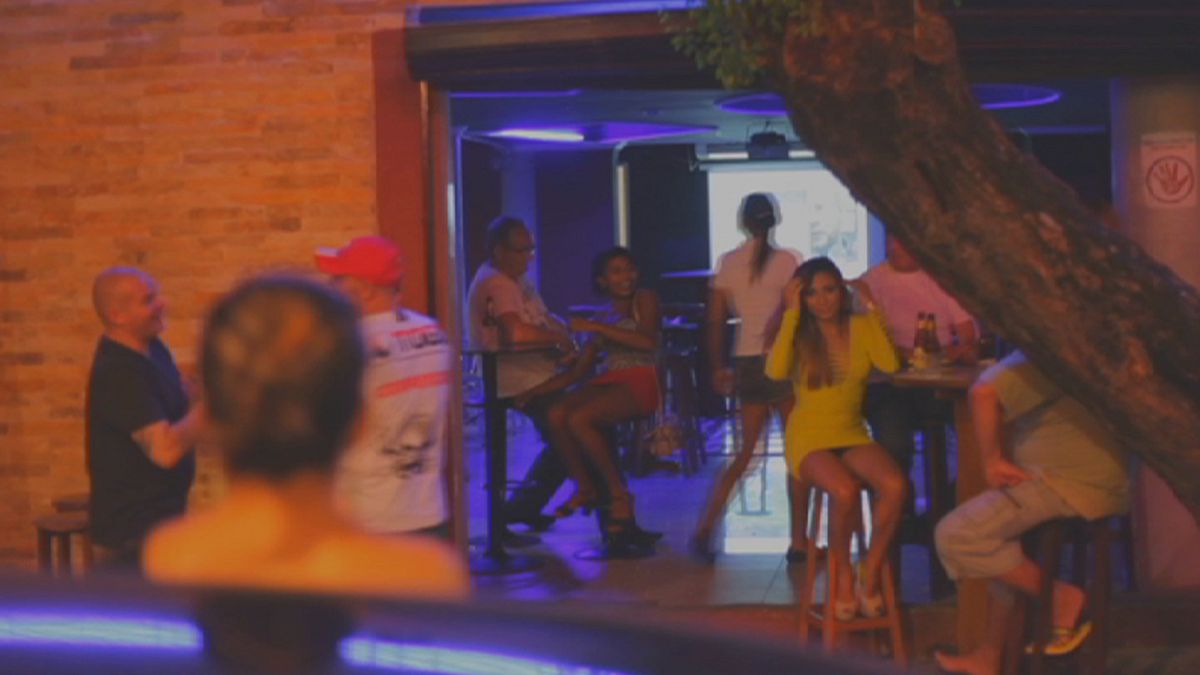It is a far cry from the gleaming new stadiums of Brazil’s World Cup but the stony ground where Tiago plays his football represents a kind of salvation for he and his friends. .
The Barraca da Amizade association offers football as an alternative to street life for disadvantaged kids in Fortaleza, capital of Brazil’s northeastern Ceara region.
“It means many things to me; it’s my entire life!” says the teenager.
Football allowed Tiago to escape from the downward spiral in which many young people find themselves, through lack of opportunity.
But the even collective efforts of support groups are not enough to overcome the many social problems of neighbourhoods like Tiago’s as social worker
Ivannia Andrade explains: “Public policies are weak, resources are lacking.
“When you come to these communities, you understand how difficult it is. Reality here is very different from the seafront, where there are also many hidden situations of sexual exploitation. Many children and teenagers fall into prostitution there, in the more lively areas.”
When night falls on the beaches near the city it’s easy to see how Fortaleza earned its reputation as Brazil’s capital of sex tourism. .
The presence of more than 3 and a half million Brazilian and foreign visitors, in World Cup host cities…
is will only expected to exacerbate the problem.
“Sexual exploitation is most often a very complex crime,” says Antonia Lima, the a coordinator of the Youth Support Centre of , Ceara’s Public Ministry..
“It involves a huge network with many players; in the tourism sector, the hotel industry, the taxi business. Agents of the State are also involved, in the police forces, and also public service officials, top civil servants.”
Near the Arena stadium we meet 17-year old prostitute Daiana.
“There are many policemen who come after us They want to take our money, or abuse us. They force girls to do things, in exchange for letting us stay here,” she tells us.
The sex trafficking networks are increasingly hard to identify, according to Brigitte Louchez
Coordinator of Barraca da Amizade: “Foreigners who come here to find minors no longer go to hotels. Instead they buy what is called a package, with a house on a beach, and “guests” of their choice, all included in the price; so they go to a beach, they have a home, and the so-called guests wait in the house for them. So it’s very difficult to detect this type of situation. “
Another disturbing phenomenon makes it even more difficult to control the networks, says the head of the Ceara Sex Workers’ Association, Alicia Oliveira: “The problem is not just the foreigners who come here looking for children. It’s not only that. There are also very poor families, with beautiful little girls or boys, who are involved. Sometimes it is the families themselves who are colluding. Because they get paid. They get all sorts of benefits. So they keep their mouths closed about the whole thing “
An international awareness campaign, partly EU funded, has been set up with the World Cup in mind. It’s run by the Social Service of Brazilian Industries; SESI. Through its association VIRA VIDA, SESI also oversees a nationwide rehabilitation programme for youths taken out prostitution networks.
According to federal police figures some 250,000 children are exposed to prostitution in Brazil. Poverty and drugs are considered the main causes.
